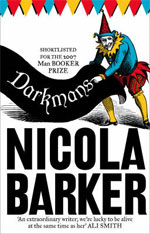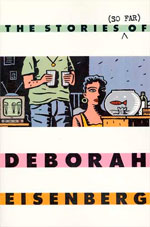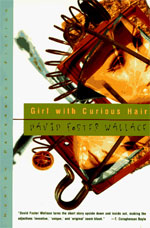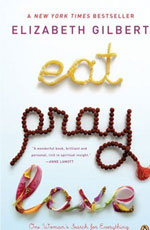
Deservedly shortlisted for the 2007 Man Booker Prize, Nicola Barker’s Darkmans pivots on the various forms of upheaval wrought by the construction of the Channel Tunnel between England and France in the late 1980s to early 1990s. The Chunnel churned up lands and historic buildings, sundered communities and families, and both destroyed and created new employment and ways of life. The colourful, rambling cast of Darkmans is touched in numerous fashions by this disruptive force.
While the new housing developments and roadways literally pave over the history of the area, forces from the past still seem to bubble to the surface and manifest themselves in disturbing ways. Is the young boy Fleet autistic, brilliantly gifted, or is he possessed by the ghost of an evil court jester who was at one time banished to France from England? Is Fleet’s father, Dory, clinically schizoprenic or also possessed by the same devious spirit? Elen, Dory’s long-suffering wife and Fleet’s bewildered but ever patient mother, seems like a put-upon heroine who also captivates hospital worker and amateur historian Beede and Beede’s easygoing drug dealer son Kane … but then might be a malevolent temptress as the many tendrils of plot and character swirl to a dizzying conclusion.
Even the more peripheral characters in Darkmans are vivid and intriguing. Barker orchestrates some clever use of typography to convey the idea of people speaking and conversing in multiple languages at once. Yet while so much going on at once would seem to defeat or exhaust even the most dedicated readers, you’re left wanting more after a breathtaking 840 page sprint.
This bit from near the beginning of the book lays some of the foundation for the disruptive force of the Chunnel development:
“It went without saying that the Chunnel (now a source of such unalloyed national complacency and pride) had caused huge headaches – and terrible heartache – in East Kent …
When the developer’s plans for the new Folkestone Terminal were initially proposed, however, it quickly became apparent that all this was soon about to change. Several farms and properties (not least, the many charming, if ramshackle homes in the idiosyncratic Kentish hamlet of Danton Pinch) were to be sacrificed to the terminal approach and concourse, not to mention over 500 acres of prime farmland and woodland, as well as all remaining evidence of the old Elham Valley Railway (built in 1884, disused since 1947). But worse still, the access road from the terminal to the M20 was due to cut a wide path straight between Newington and Peene, thereby cruelly separating them, forever.”










